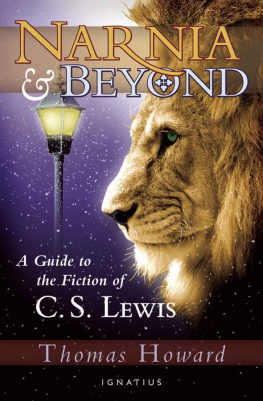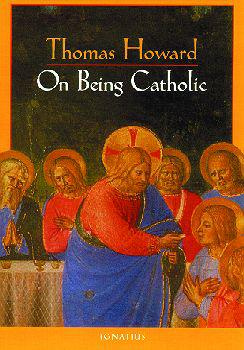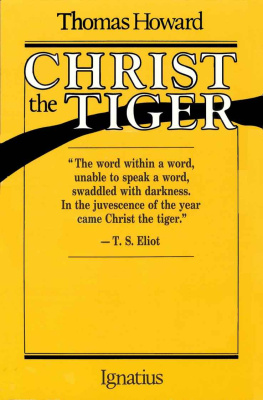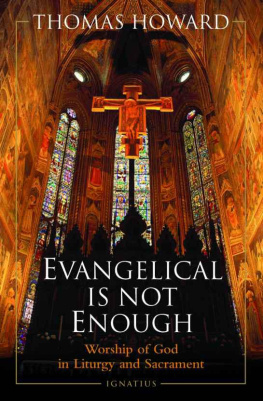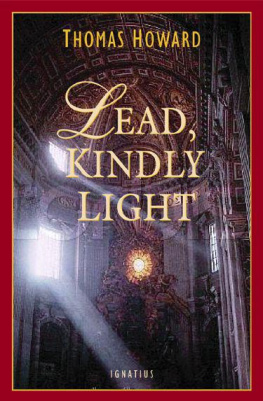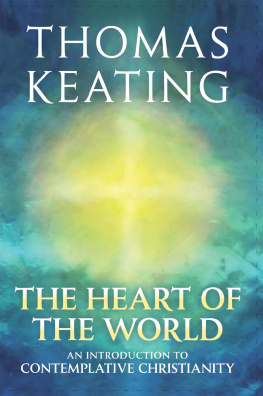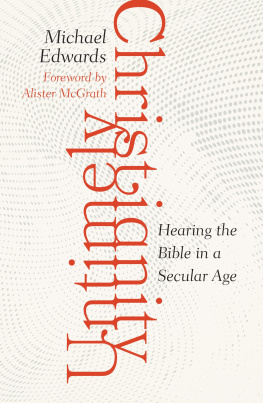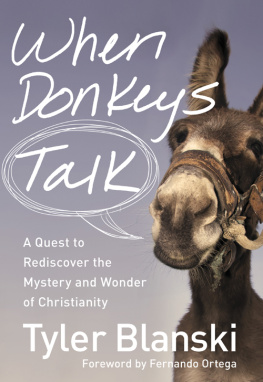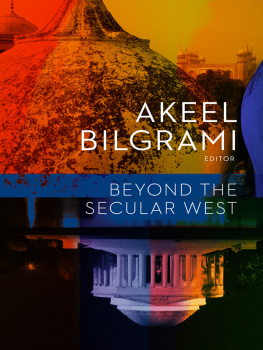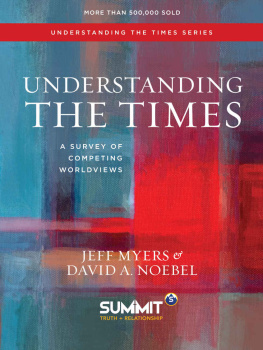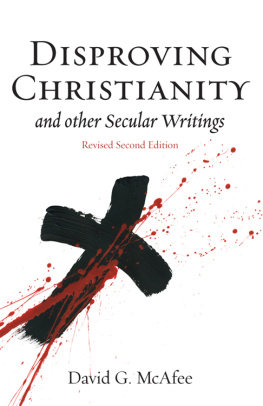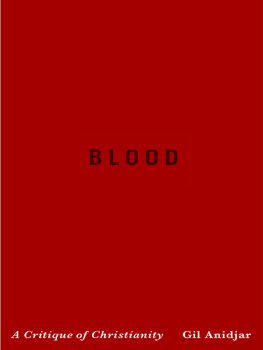CHANCE OR THE DANCE?
THOMAS HOWARD
Chance or the
Dance?
A Critique of Modern Secularism
Second Edition
IGNATIUS PRESS SAN FRANCISCO
First edition published by
Harold Shaw Publishers
Wheaton, Illinois
1969 by Thomas T. Howard
Reprinted 1989, 2001 by Ignatius Press, San Francisco
Cover photograph:
Starry Rotating Night
By LazyPiexel / Brunner Sbastien
Getty Images
Cover design by Roxanne Mei Lum
Second edition 2018 by Ignatius Press, San Francisco
ISBN 978-1-62164-229-9 (PB)
ISBN 978-1-64229-034-9 (EB)
Library of Congress catalogue number 2017954432
Printed in the United States of America
For Professor Kilby
who took my arm and said, Look
CONTENTS
FOREWORD
by Eric Metaxas
Once upon a timewhen I was a young manI fell as it were under a spell. Truth be told, I did not so much fall under it as I was buoyed up by it. It was not the standard fairytale ensorcelling that pushes upright man downward toward four-footed bestiality, but was rather the magnificent opposite of such. It was the kind of spell that ennobles, that turns straw and lead into gold. In fact, it was as though I had been carried from a low neighborhood of mud and brindle hair to the very ramparts of heaven.
This took place in the summer of 1988, when I bowed my knee to that Sovereign of Sovereigns whose coming is prophesied in the ancient Scriptures of Israel. Truth be told, this new allegiance was the best thing that ever happened to me, which is itself a wild understatement. Yet, this tremendous boon came with some difficulties. For one thing, how was I to explain this dramatic change of situation to my educated and civilized friends who had not been similarly entranced, and who thought my newfound joy something barbaric, if not as undeniable evidence of my having become non compos mentis?
I myself wondered about a few things too. For one thing, precisely how was I to reconcile my new faith with certain parts of my previous life? For example, must I leave behind forever my love of words and ideas and meaning? Was this new world of serious Christian faith compatible with a love of classical and even pagan literature? With puns and poesy? I seemed to have evidence that it was not; and so I was troubled.
Then someone on a white steed hurriedly rode toward me and handed me the book you are yourself now holdinghis name is Tibor Lengyel, but we must not name him publicly here. And that book I did ope and did read. And my life was then and forever changed. So it is a fact that reading this book was for me like a miracleand was not merely like a miracle but really was a miracle. And the book itself is a miracle still. How to describe it?
Let us imagine that C. S. Lewis had lived well beyond 1963 and had written many more essays and poems and books. Imagine that six years after we thought he had died he produced one of his most beautiful and important books, titled Chance or the Dance? That, in effect, is what you have in your hands now. In fact, anyone who loves C. S. Lewis and who has not read Chance or the Dance? is almost missing a new book in Lewis oeuvre. It is simply quite that good. There are differences between Lewis and Howard, to be sure. For one thing Howards prose style is better than anything in Lewis nonfiction; and I hope that everyone can at least agree that it is more beautifuleven sumptuousand I have no doubt that old Jack would agree. (By the way, as a graduate student, Tom Howard visited Jack Lewis at the Kilns and spent an afternoon with him there, but thats another story.)
Unlike most books, this one is nearly impossible to categorize. What exactly is it? For one thing, it is a manifesto, as you will soon see. But it is a kind of prose symphony too, which manifestos manifestly never are. In another way it is a rambling yet manicured and sweeping lawn, punctuated appropriately with a population of ancient and agreeable marble busts. There are things in it that you will simply never forget.
To put it another way, there are a handful of books that if not read will put one at a serious disadvantage in life. These books are foundational and help us understand the world in a way that is positively vital. They are primers, giving us a new vocabulary with which to apprehend the cosmos. To read these books is something like learning to tie a shoe. It is an experience without which life is inestimably more difficult, and even dangerous. Who wants to trip on ones shoelaces over and over throughout the long decades?
But back to the prose. It is exquisite to the point of being baroque, but never rococo. It is nearly as lapidary as Lincolns Second Inaugural, but is never cloyingly so, as some of Chestertons aphorism-riddled writings can be, however good they are. And like Chesterton, this book is both lapidary and fun . Sadly, the universe of such writing seems limited to the works of these two authors. So be of good cheer: this little sea upon which you are about to embark in your stout coracle is inestimably and impossibly wonderful. I cannot think of a single book in creation that says anything approaching what this book says, and certainly not with the lan and joie de vivre and fitness with which this book says it.
For example, would you like to understand once and forever the forlorn folly of so-called sexuality outside marriage? More to the point, would you like to understand exactly what sex is and what it is for? Here you will find it. And incidentally, if you ever in your life discover a better chapter on sex than the one in this bookin any written languagedo not delay in dropping everything and chartering a plane to wherever I am to share it with me, for which trouble and expense I will hock all I have to reimburse you. In this book you will see with your whole soul how the modern, materialistic view of the world is as sad and silly as anything ever could be: as a snake swallowing its own tailand then vanishing into thin air with a faintly audible pop. Ciao!
But have I mentioned the prose style? The book is a happy bramble of giddy turns of phrase, and through it that reader will proceed best who proceeds least hurried. Be absolutely certain that you give yourself the time to take in the whorls and the whoopees. And by all means feel free to look upand then sunbathe insuch words as valetudinarian and purlieu and bibelot. And be sure to gambol and cut capers over the references to Vermeer and Wee Willie Winky and Ultima Thule. And by all means turn cartwheels and handsprings around such sentences as Dont insist on seeing a cosmic order in Goosey, Goosey, Gander. Thats the only appropriate response.
Must we cut to the chase? There is nothing like this book. It stands apart in what it is and what it says and cannot really be compared to any other books ever written. Read it for yourself and tell me to what you would compare it. To a Shakespearean sonnet? At least thats a start. And like all the truly best art, it has a powerful moral component. If I may say so, this book makes me want to be a better man. If you are a man I suspect it will make you want to be a better man, too; and if you are a woman it will make you want to be a better woman. And thats no jive, turkey.
* * * * *
In the summer of 1998, nine years after reading this book, I found myself headed to Oxford University for the centenary of C. S. Lewis birth. I was in part excited to go because I understood that Thomas Howard was to be there. Could he exist in the same world in which I did? On the bus from Heathrow I met a woman who was also headed to the Lewis event, and somehow it came out that she was friends with the Howards. I gulped.
And then it happened. Later that day there was a reception in the grassy quadrangle of Magdalen College, which was C. S. Lewis college at Oxford and whose particular golden greennessframed by the stone-cloistered walksseemed itself to partake of the Middle Ages. The woman to whom I was speaking on the bus saw me and introduced me to her friend Lovelace Howard. When I visibly goggled to be speaking to the wife of the man whose book had changed my life, she smiled and said: Would you like to meet him?
Next page

